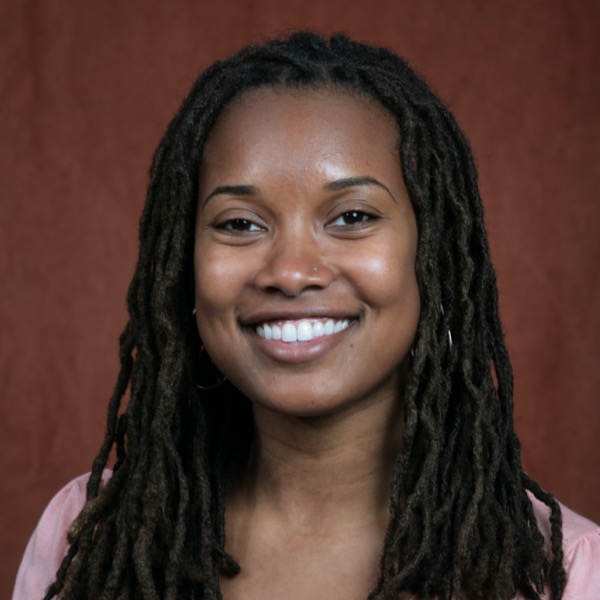When Dr. Kristal Moore Clemons started volunteering with the Children’s Defense Fund (CDF) Freedom Schools in college, she didn’t imagine she would be leading the organization someday.
Clemons’ college experience with the CDF Freedom Schools, a network of multicultural summer and after-school programs for K-12 students, had captured her imagination, however. While earning her Ph.D. in Education-Culture, Curriculum and Change at the University of North Carolina at Chapel Hill, she wrote her dissertation on Black women teachers of the 1964 Mississippi Freedom Schools, and later she was a co-founder and co-executive director of new Freedom School sites while an assistant professor at Florida A&M University and Virginia State University.
Clemons recently left Virginia State to become the National Director of CDF Freedom Schools. It is just the latest stop in a career that has been focused on educating and empowering minoritized students.
That work began to intersect with online education 10 years ago when, Clemons says, she was between graduation and her first tenure-track position. She took a job teaching in an online program at Northeastern University, and at the time, online education felt like a second choice. But she was heartened by the large number of minoritized students in the program who found it more accessible when they had full-time jobs.
“I took that as a challenge,” says Clemons. “I had a terrific dissertation advisor who mentored me, and I thought, if I’m going to work in this space, how can I replicate my experience in an online platform?”
She threw herself into understanding how culturally responsive teaching could support distance learning. She used the supportive online teaching techniques she developed while helping other educators shape their own curricula, including as a dissertation advisor for online Ed.D. students at Virginia State.
Now Clemons is bringing her experience in distance learning pedagogy, the social foundations of education, and connecting with students in online environments to the Every Learner Everywhere Expert Network, powered by ISTE. She is one of a group of seven consultants providing flexible on-demand coaching to higher education faculty and leaders who are working to advance equity and inclusion in blended and online modalities. Her areas of expertise include critical race theory in education, culturally responsive pedagogy, distance learning, online pedagogy, educational leadership, and multicultural education.
Building relationships online
Clemons admits her goal of replicating her graduate school experience in an online environment took some trial and error. First, she had to develop techniques to build a sense of community remotely. She began holding flexible virtual drop-in office hours, as well as recurring one-on-one meetings with individual students. To make the best use of time, she sent students a spreadsheet to fill out with information she needed to know ahead of time.
Creating a continuous feedback loop is a key part of a successful online course, notes Clemons. Responding to student work and questions in a timely fashion enables compassion, trust, and morale building.
Eventually, Clemons started to see success. More of the doctoral students she taught were completing dissertations, and they were having more success with writing independently. “They knew I was there to support them,” Clemons says.
“I wasn’t just an icon in the learning management system. It sounds very simplistic, but I started to see things change when I put more time into building relationships with students.”
Blending online learning with in-person instruction
Eventually, Clemons was replicating online learning experiences in her face-to-face classes instead of vice versa. For example, voice memos posted on the LMS and virtual office hours are “online” techniques that she found improved the experience busy working students had in her “traditional” classrooms.
“When you build out a fully virtual learning experience, the learning can continue regardless of what’s happening in the world around us,” she says.
Clemons’ experience has led her to collaborate with colleagues and graduate students to develop good practices for culturally responsive online pedagogy. So when the COVID-19 crisis began in Spring 2020 and it started to look like in-person learning would be shut down, Clemons was ready. She encouraged colleagues to upload their course content to the university’s LMS, sending out screenshots and talking some through the process. Because of this, her department at Virginia State was able to keep dissertation defenses on schedule through the spring.
Reimagining the possibilities
Clemons feels that the virtual dissertation defenses she and her colleagues created did more than just sustain progress of their students. They became special new experiences, because “we decided to reimagine the possibilities,” Clemons says.
For example, she encouraged students to invite family and friends to attend the virtual defenses. They used breakout rooms for the committee members to discuss their decision, and played music in the main room while the student and their friends and family waited for the results. They also recorded the dissertation defenses so students could have a keepsake.
“I would say don’t worry about going back to the way things were,” Clemons says of the disruption caused by COVID-19. “Think about all the possibilities that we’re able to do now as a result of being more savvy about technology and distance learning.”
Helping people imagine those new possibilities is one of the things Clemons is excited to do as a coach in the expert network. She enjoys working with school administrators and leaders, particularly on culturally responsive curricula. And she believes that, used effectively, digital learning technologies can create stronger bonds with students rather than just serving as a tool to submit papers and deliver lessons.
“I’m looking forward to being a thought partner with people in terms of best practices and the things that have brought me success and joy as an instructor,” she says.
This article is part of a series profiling consultants in the Every Learner Everywhere Expert Network, powered by ISTE. The program offers flexible, on-demand coaching to advance equity and inclusion in blended and online modalities using all aspects of digital learning.
Learn more about the program and schedule a consultation with Kristal Moore Clemons.


